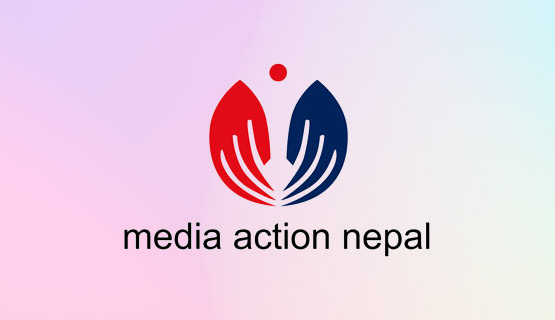
Journalists empowered to prevent disinformation
KATHMANDU: Working journalists from the district of Ilam, who participated in a three day follow-up training in combating disinformation, organized by Media Action Nepal in collaboration with the U.S. Embassy in Nepal, have been empowered to prevent disinformation and misinformation. Fifteen journalists from group ‘A’ including four women were trained on different dimensions of preventing disinformation such as fact checking techniques, gendered disinformation, disinformation and foreign policy and approaches to combating infodemic. The training webinar on ‘combating disinformation to promote credible journalism’ that concluded on Friday, was organized as the follow-up to first phase training conducted in February, 2020.
Speaking at the inaugural session on the first day, Mr. Karl Rogers, Acting Public Affairs Officer at the U. S. Embassy in Nepal appreciated journalists’ interest in promoting credible journalism. Emphasizing that responsible journalism does not distort reality, he added, ‘As the news sources surge, it increases chances of being confused or misinformed.’ Journalists have difficult jobs wherein they have the impulses of getting the audience attention or breaking the news first but such impulses can be really counterproductive, he added. Ms. Prerana Marasini, Information Specialist of the U. S. Embassy in Nepal said, “Your continued participation in this cause shows your mindset of promoting a more responsible media.” “Along with the pandemic we are facing an overflow of information and that is why this training is all the more significant to help the audience and the journalists to combat the infodemic” she added. The inaugural session was moderated by Ms. Priyanka Jha, Vice-Chairperson of Media Action Nepal.
On the first day, participants came up with their experiences, problems and summaries of the training exercises given to them during the first phase of the training program that was organized in Ilam in February. Participants called out numerous issues in their respective workplace and content. Most participants observed a trend in themselves of gathering news from other online portals which causes incomplete and inaccurate content. All participants learned and practiced human and digital ways of fact checking and claimed to have started practicing self-regulation better.
In the second session of the day, Dr. Samiksha Koirala, media and gender expert facilitated a session on ‘Gender Sensitivity in Media.’ Presenting with examples of gendered disinformation, she said “Gender matters in journalism not only to promote diversity and plurality in the media but also make the process of communication more democratic by ensuring women’s right to freedom of expression”. Gendered misinformation has adverse effects on women. Significant occurrences of such phenomenon and gender insensitive dissemination of information can have a silencing effect on women. “As many as 67 percent female journalists in Nepal said they have experienced some sort of abuse online,” reported Koirala. She then engaged the audience to share their personal experiences or viewpoints on the matter.
The second day started with recapturing of the first day sessions from participants saw an interactive discussion on social responsibility, self-regulation, disinformation and foreign policy. Facilitating the first session of the day on ‘Social Responsibility and Self-Reegulation’ Mr. Laxman Datt Pant, media expert and the Chairperson of Media Action Nepal reiterated that self-regulation helps maintain the journalistic credibility with the public and convinces the public that the free media are not irresponsible. He discussed and interacted with examples on dimensions on how social responsibility, ombudsman practice and self-regulation help in minimizing current day disinformation. The second session of the day on ‘Media, disinformation and foreign policy’ was facilitated by Mr. Kamal Dev Bhattarai, Political Editor of the Annapurna Express, where he introduced the participants with principles of foreign policy and the role of media in formulating foreign policy and its implementation with particular focus on ways combating disinformation on such issues.
The third day sessions were focused on ‘tackling misinformation and countering infodemic with particular focus on conspiracy theories and the techniques of detecting disinformation. Journalists were introduced with latest conspiracy theories in the first session moderated by Mr. Laxman Datt Pant. He discussed about fake news in online portals and social media, ways preventing such information, breeding ground of fake news. The second session of the day focused on countering infodemic, was facilitated by Dr. Gifty Appiah-Adjei, media researcher and scholar from University of Education, Ghana. Stating that infodemic is one of the key challenges resulting from the corona pandemic, she introduced and discussed major ways of preventing information disorder including human and artificial intelligence. She discussed about reverse image and video search, intel techniques, YouTube data viewer and encouraged journalists’ to play an effective role in preventing disinformation. Participants engaged in an exercise on ‘google reverse image search’, which they found very interesting in relation to reality and authenticity of photographs.
The participating journalists said that they found the training sessions very useful and encouraging for their day-to-day journalistic works. Sunita Khaling Rai, one of the participating journalists said, “This training is the best among all trainings I have taken so far, it has added more energy to my journalistic career to be more credible and ethical.” The next follow-up training for group ‘B’ of Ilam, Panchthar and Jhapa districts is scheduled for September 14 to 16, 2020.